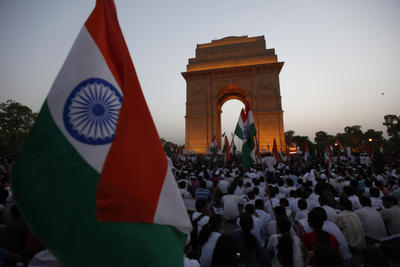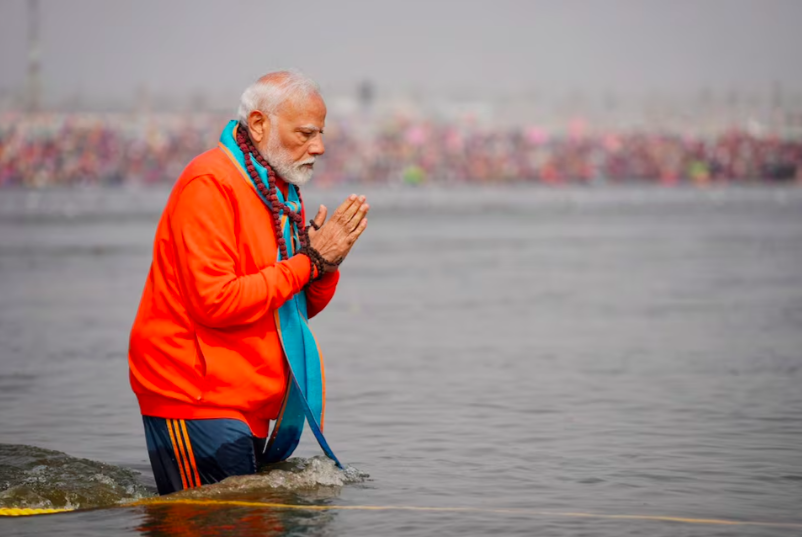Asghar Ali Engineer
First of all we should keep this in mind that corruption is moral rather than a legal question though legal aspect cannot be and should not be underestimated. However, its moral underpinnings are of primary importance. There are certain offenses for which legality is of greater importance and certain crimes for which morality is of far more importance. Corruption is of many varieties and any form of corruption cannot be fought without emphasis on morality and not mere legality.
If one applies Gandhian method to fight corruption this aspect becomes all the more important. The important element of Gandhian method is what we call satyagrah i.e. insistence on truth and truth is obviously a moral rather than criminal category. One applying Gandhian method has to be obviously truthful and his/her character should be above board and not only that one must be of spiritual bent. Often Gandhiji went on fast not against anyone but against himself what he called pashchyatap i.e. repentance.
To fast against someone else implies an element of coercion and coercion also is not morally right. Gandhiji often fasted when communal violence broke out because he thought in such situations one must repent for ones failure to clean the society of communal prejudices and ones failure to be truly spiritual. In other words satyagraha is primarily a spiritual and not political instrument and one who has no political intent can apply it in true spiritual sense.
Today the way corruption is sought to be fought has become primarily a political question on one hand, and, legal on the other. The ruling party is taking one stand and opposition the other and then accusing each other of not being sincere in fighting corruption. Even the language being employed reflects malice rather than spiritual. One sees more of a power game than concern for truth and spiritual cleansing. Any moral question is essentially based inner self and a deep concern for truth.
Apart from Gandhian method here is also the question of fundamental nature: can one effectively fight corruption when both our politics as well as economics structurally promotes it? One has to very deeply reflect on this aspect as one is sincere in fighting corruption. It is precisely for this reason that Jaiprakash Narain and V.P.Singh who launched major campaign against corruption not only failed but corruption increased subsequently several fold as we see today.
When one begins fighting corruption by indicting the ruling party naturally the opposition becomes supportive although opposition indulges in no lesser degree in corruption while ruling and thus whole question gets politicized. In such an atmosphere of accusation and counter-accusation the spirit of truthfulness is lost and it appears as if corruption is being used as an instrument of political game. Thus the very fundamental concept of satyagraha is damaged.
Also, as pointed out above one has to deal with the question of corruption not only as ethical and spiritual but as structural. The Capitalist economy is competitive in nature and its basic aim is not to serve the basic needs of people but to maximize profit. Thus its ethical foundation is quite shaky and capitalists would do anything to maximize their profit and thus corruption i.e. achieving their aim through bibing is sought to be achieved.
The scale of corruption when Jaiprakash Narainji or V.P.Singhji were fighting against it was much less and today when it has increased many folds and amounts involved are mind boggling mainly because of liberalization and globalization. This structural question is not being addressed at all in these campaigns against corruption. It is not fight against corruption but politics in the name of corruption. On top of it it is being described as ‘second freedom struggle’ thus magnifying the importance of so called ‘fight against corruption’ on one hand, and, trivializing the importance of our freedom struggle, on the other.
We the people of middle classes who are enthusiastically supporting the campaign against corruption, are glorifying globalization of economy which lead to more corruption and yet want corruption-free society. It is indeed highly contradictory stand. The present campaign against corruption is totally silent about the very source of corruption i.e. multinational companies who are here to maximize their profit and even sky is not the limit for their greed.
Thus the truth content of such campaign is extremely shaky and it has no chance of succeeding. And for anyone to be Gandhian one has to be truthful which is he very basis of satyagraha. Thus a campaign which is weak in truth content and also fails to address the structural aspect is neither Gandhian nor realistic and is doomed to failure.








